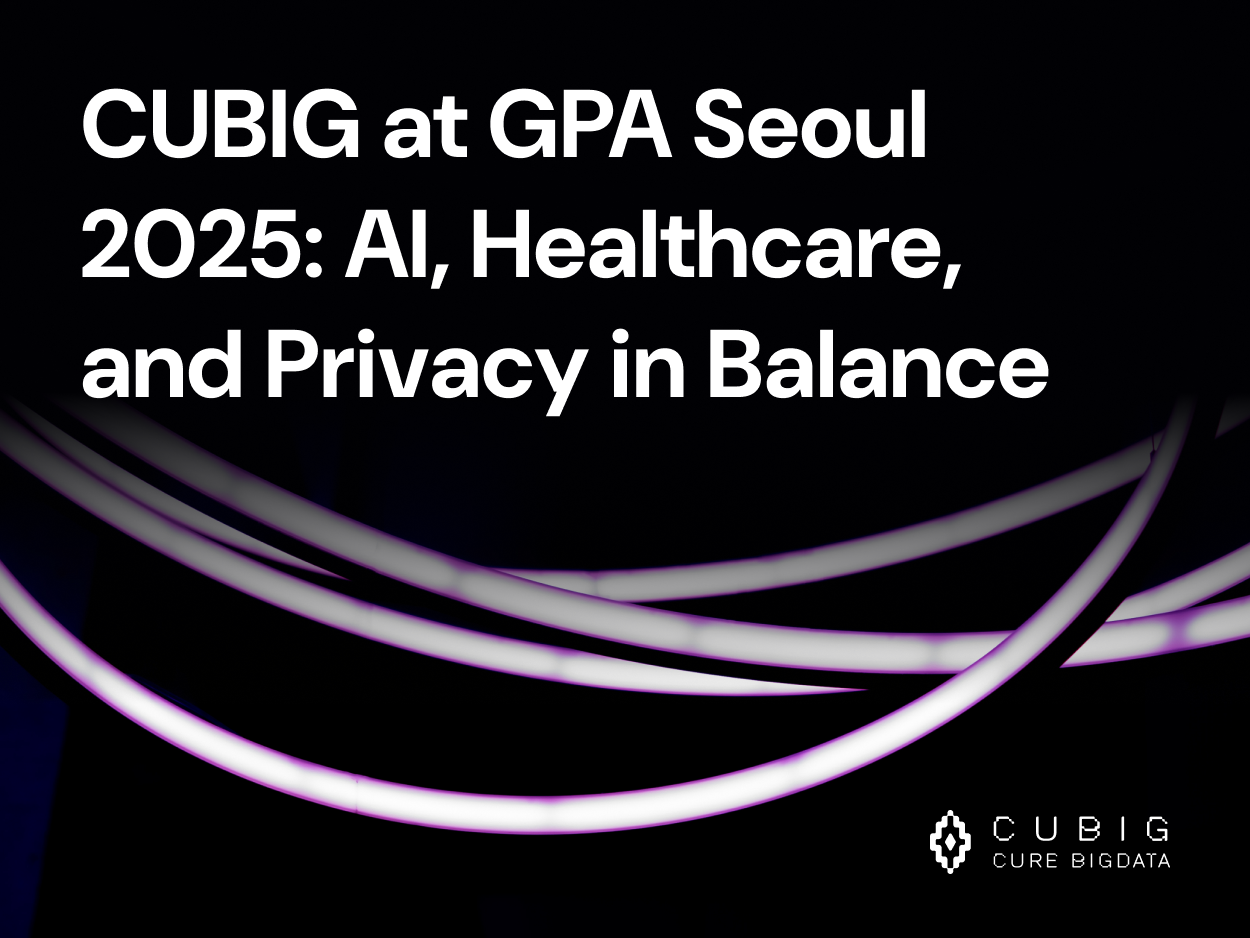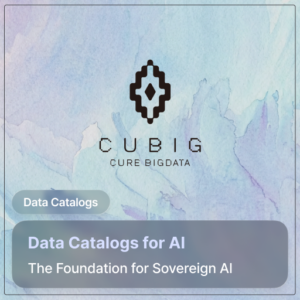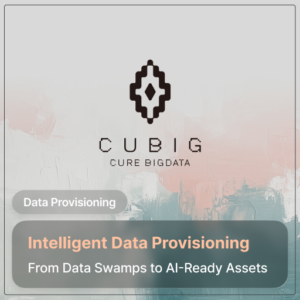CUBIG at GPA Seoul 2025: AI, Healthcare, and Privacy in Balance
Views: 0

Contents
Hello, we are CUBIG, a leader in synthetic data and AI security. This September, our CEO, Professor Ho Bae, successfully moderated a panel at GPA (Global Privacy Assembly) Seoul 2025.
We’d also like to take this chance to thank our Fireside Chat speakers—Professor Ran Balicer (Ben-Gurion University of the Negev) and Dr. Sooyong Shin (Head of Kakao Healthcare Research Institute) for joining us in such an insightful discussion.

How AI is Transforming Healthcare 🚑
The session, titled “Impact of AI on Healthcare Services and Privacy,” explored the opportunities and risks of AI in healthcare. We began by asking how AI is currently used in medical settings. While most applications so far are limited to appointment booking or simple chatbots, experts agreed that within 5–10 years, a new era of AI–physician collaboration will emerge.

Imagine telemedicine where AI drafts consultation notes, and doctors make the final call. A study published in Nature Medicine even showed that generative AI achieved dermatologist-level accuracy in diagnosing skin conditions. Still, the big question remains: “How far can we trust AI in real clinical practice?”
Synthetic Data: A Bridge Between Regulation and Innovation 🌉
We highlighted how synthetic data can resolve this dilemma. Healthcare data is heavily restricted under laws like GDPR and HIPAA, making international collaboration difficult. With synthetic data, researchers can perform meaningful analysis without accessing raw patient data. MIT research teams have already confirmed synthetic datasets can address the shortage of clinical trial data.

That said, improving quality and reliability remains a challenge. This is why CUBIG integrates Differential Privacy (DP) into our synthetic data engine, ensuring the data is not just anonymized “shells,” but trustworthy assets that organizations can actually use with confidence.

Patient Trust and Dynamic Consent 🙋
Another key theme was patient trust. People want to know how their data is being used—and to withdraw consent if necessary. Professor Bae introduced the concept of dynamic consent management, where patients can flexibly manage the scope of their data usage.
Technologies like blockchain could make this possible. Interestingly, the EU’s latest Data Governance Act is already moving in this direction, and it’s likely to become a global standard.

AI Innovation and Privacy Together 🌍
CUBIG’s core message was simple: “AI innovation and privacy are not mutually exclusive—they can be achieved together.” Our LLM Capsule automatically detects and masks sensitive data before it ever reaches public LLMs. Combined with synthetic data for safe training and analysis, these solutions show how we address problems that even global big tech companies struggle to solve.
Looking Ahead 🙌
To sum up, GPA Seoul 2025 left us with three key takeaways:
- AI as a driver of medical innovation
- Synthetic data as the key to overcoming regulatory barriers
- Patient trust as the foundation of future governance
At CUBIG, we’ll continue building on the insights gained from global stages like GPA to ensure our customers and partners can safely embrace AI. Thank you to everyone who joined us—we look forward to sharing the next chapter of our journey with you.

CUBIG's Service Line
Recommended Posts









